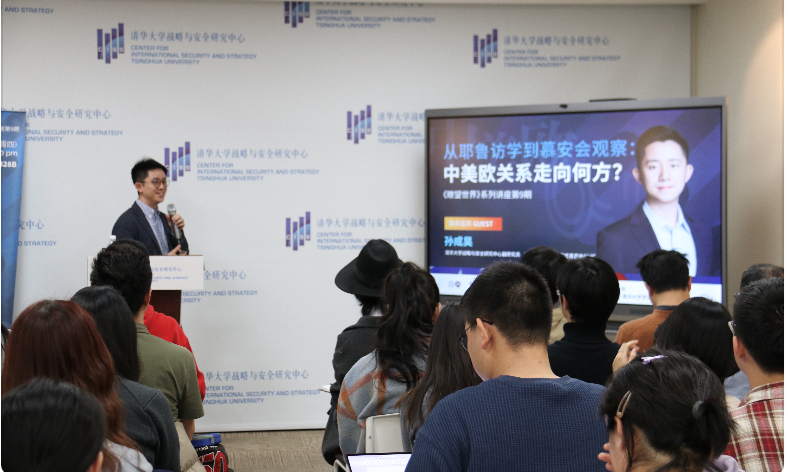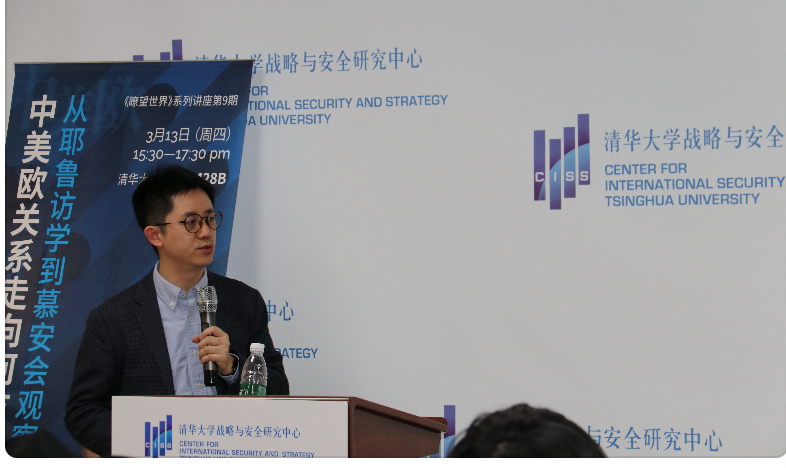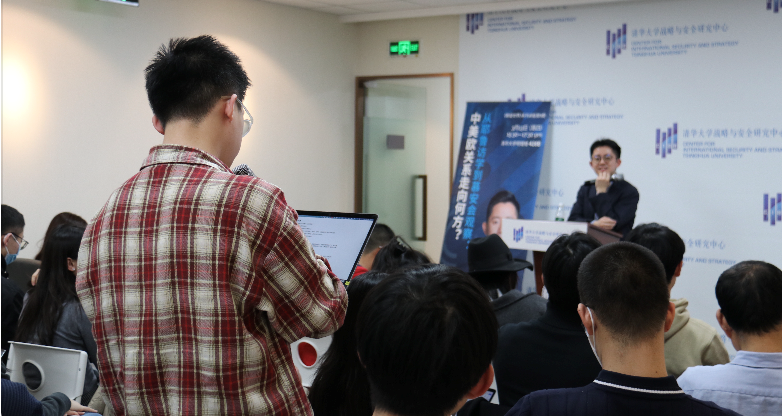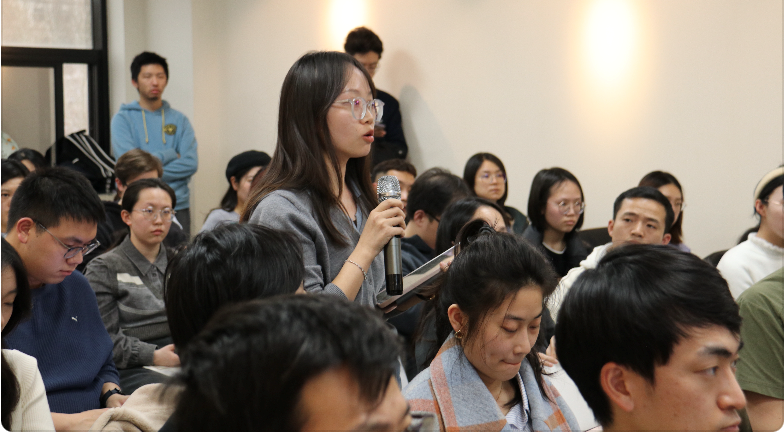On March 13, 2025, the Tsinghua University Student Association for International Strategic Studies (THUSAISS), under the guidance and support of the Center for International Security and Strategy(CISS) and Center for Global Competence Development at Tsinghua University, successfully hosted a thematic lecture titled "From Yale Visiting Scholarship to Munich Security Conference Observations: Where is the China-US-Europe Relationship Heading?" The event invited Dr. Sun Chenghao, a fellow of CISS and a selected "Munich Young Leaders," to analyze the current dynamics and future trends of China-US-Europe relations from multiple perspectives. Dr. Sun drew upon his observations and reflections during his visiting scholarship at Yale Law School and his participation in the Munich Security Conference (MSC).

Photo: Lecture in Progress
Dr. Sun first shared insights from his academic exchanges with American scholars on China-US and US-Europe relations during his time at Yale. He noted that the evolving trilateral relationship reflects both the dynamic equilibrium of great power competition and multifaceted interactions in international security, technological rivalry, and economic engagement. He also recounted his experience as a "Munich Young Leader" at the MSC in early 2025, which provided him with diverse angles to observe China-US-Europe interactions and deepen his understanding of the shifting global landscape. Additionally, Dr. Sun summarized the core themes of the MSC annual reports over the past three years, offering students a clearer view of Europe’s evolving global perspectives.
Subsequently, Dr. Sun examined recent shifts in US-Europe relations, beginning with the Trump administration’s policy adjustments toward Europe. He highlighted Europe’s responses and strategic planning, emphasizing that while Europe is actively enhancing its defense capabilities, it remains heavily reliant on NATO and US security guarantees within the broader security architecture. On the Ukraine crisis, he dissected the divergent and overlapping interests of Europe, Russia, Ukraine, and the United States, arguing that US-Europe relations exhibit both tensions and alignment on this issue, offering critical insights into the crisis’s trajectory. Finally, Dr. Sun underscored that the transatlantic relationship is transitioning from cooperation to competition, with China-US-Europe dynamics increasingly shaped by security, economic, and technological factors. This evolution, he concluded, is driving the international system toward greater multipolarity.

Photo: Lecture in Progress
During the Q&A session, attendees raised questions on topics such as the prospects of China-Europe cooperation, Europe’s advancements in artificial intelligence, and the United States’ long-term strategy toward Europe. Dr. Sun addressed each inquiry in detail. The lecture provided a unique academic and practical lens for participants to examine the complexities of China-US-Europe relations, combining rigorous research with Track II diplomatic insights to foster a comprehensive understanding of current geopolitical shifts. The event sparked lively discussions among faculty and students.


Photo: The enthusiastic Q&A session
